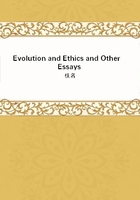
第82章
The "Times," January 22nd, 1891 SIR,--I think that your readers will be interested in the accompanying opinion, written in consultation with an eminent Chancery Queen's Counsel, with which I have been favoured. It will be observed that this important legal deliverance justifies much stronger language than any which I have applied to the only security for the proper administration of the funds in Mr. Booth's hands which appears to be in existence.
I am, Sir, your obedient servant, T. H. Huxley.
1, Dr. Johnson's Buildings, Temple, E.C., January 14, 1891.
MR. BOOTH'S DECLARATION OF TRUST DEED, 1878.
"I am of opinion, subject to the question whether there may be any provision in the Charitable Trusts Acts which can be made available for enforcing some scheme for the appropriation of the property, and with regard to the real and leasehold properties whether the conveyances and leases are not altogether void, as frauds on the Mortmain Acts, that nothing can be done to control or to interfere with Booth in the disposition or application of the properties or moneys purported to be affected by the deed.
"As to the properties vested in Booth himself, it appears to me that such are placed absolutely under his power and control both as to the disposal and application thereof, and that there are no trusts for any specific purposes declared which could be enforced, and that there are no defined persons nor classes of persons who can claim to be entitled to the benefits of them, or at whose instance they could be enforced by any legal process.
"As to the properties (if any) vested in trustees appointed by Booth, it appears to me that the only person who has a locus standi to enforce these trusts is Booth himself, and that he would have absolute power over the trusts and the property, and might deal with the property as he pleased, and that, as in the former case, nothing could be done in the way of enforcing any trusts against him.
"As to the moneys contributed or raised by mortgage for the general purposes of the mission, it appears to me that Booth may expend them as he pleases, without being subject to any legal control, and that he cannot even be compelled to publish any balance-sheets.
"Whether there are any provisions in the Charitable Trusts Acts which could be made available for enforcing some scheme for the application of the property or funds is a question to which I should require to give a closer consideration should it become necessary to go into it; but at present, after perusing these Acts, and especially 16 and 17 Vict. c. 137 and 18 and 19 Vict. c. 124, I cannot see how they could be made applicable to the trusts as declared in this deed.
"As to the Mortmain Acts, the matter is clearly charitable, and unless in the conveyances and leases to Booth, or to the trustees (if any) named by him, all the provisions of the Acts have been complied with, and the deeds have been enrolled under the Acts, they would be void. It is probable, however, that every conveyance and lease has been taken without disclosing any charitable trust, for the purpose of preventing it from being void on the face of it. It is to be noted that the deed is a mere deed poll by Booth himself, without any other party to it, who, as a contracting party, would have a right to enforce it.
"Whether there are any objects of the trust I cannot say. If there is, as the recital indicates, a society of enrolled members called 'The Christian Mission,' those members would be objects of the trust, but then, it appears to me, Booth has entire control and determination of the application. And, as to the trusts enuring for the benefit of the 'Salvation Army,' I am not aware what is the constitution of the 'Salvation Army,' but there is no reference whatever to any such body in the deed. I have understood the army as being merely the missionaries, and not the society of worshippers.
"If there is no Christian Mission Society of enrolled members, then there are no objects of the trust. The trusts are purely religious, and trading is entirely beyond its purposes. Booth can 'give away' the property, simply because there is no one who has any right to prevent his doing so.
"Ernest Hatton."
It is probably my want of legal knowledge which prevents me from appreciating the value of the professed corrections of Mr. Hatton's opinion contained in the letters of Messrs. Ranger, Burton, and Matthews, "Times," January 28th and 29th, 1891.
The note on page 301 refers to a correspondence, incomplete at the time fixed for the publication of my pamphlet, the nature of which is sufficiently indicated by the subjoined extracts from Mr. Stead's letter in the "Times" of January 20th, and from my reply in the "Times" of January 24th. Referring to the paragraphs numbered 1, 2, at the end of my letter XI., Mr. Stead says:-,"On reading this, I at once wrote to Professor Huxley, stating that, as he had mentioned my name, I was justified in intervening to explain that, so far as the second count in his indictment went--for the Eagle dispute is no concern of mine--he had been misled by an error in the reports of the case which appeared in the daily papers of November 4, 1885. I have his reply to-day, saying that I had better write to you direct. May I ask you, then, seeing that my name has been brought into the affair, to state that, as I was in the dock when Mr.